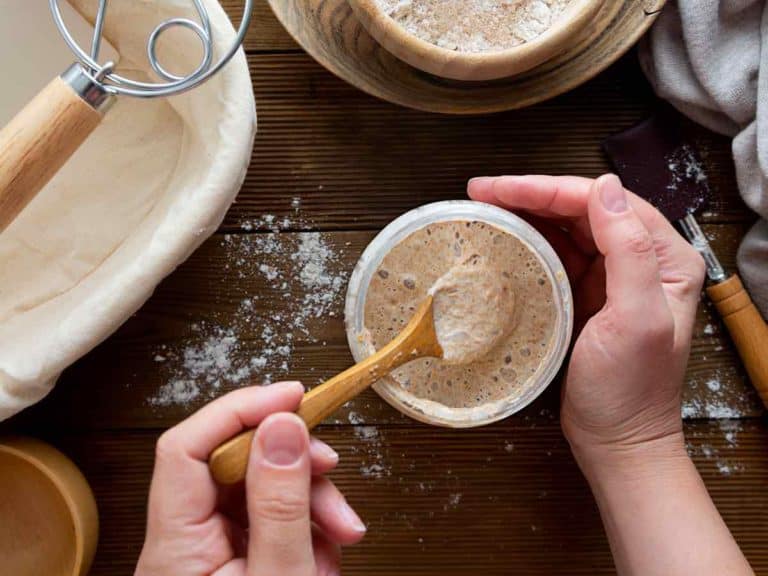
Sourdough Starter Smells Like Vinegar? Here’s What To Do! Food & Wine
Add double the amount of feed to the sourdough starter. Pour a lot of water into the mixture. Stir the mixture properly, cover the jar and leave it. Repeat the process around 3-4 times, and after a week, you will notice the change in the scent of the starter. In your sourdough starter, both yeast and bacteria are present.

Pin on recipes
Take your own sourdough starter that is at 100% hydration. In a clean jar, place a small amount of sourdough starter. Then double the amount to feed to the sourdough starter. Pour water into the mixture. Stir the mixture well, then cover and leave to sit at room temperature. Repeat this 3-4 times, and you should notice a change in the smell of.
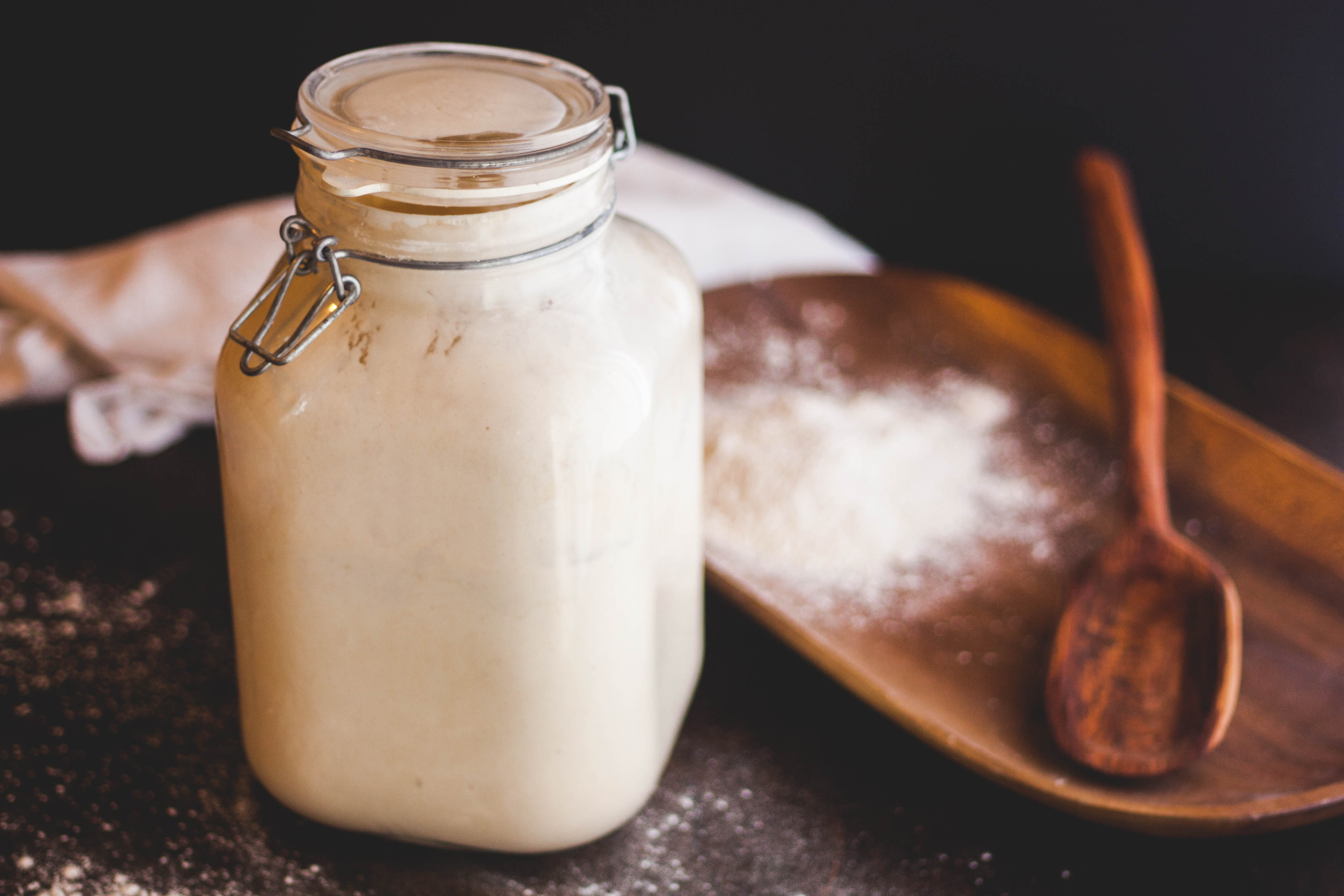
Homemade Sourdough Starter Jennifer Cooks
If you see white clusters, or a white film that appears to be mold on your starter, this is most likely kahm yeast. Kahm is not dangerous, but it can make your sourdough starter taste a bit funky. To tackle this: take some starter from the middle of the jar and transfer it to a clean jar, feeding this as normal.
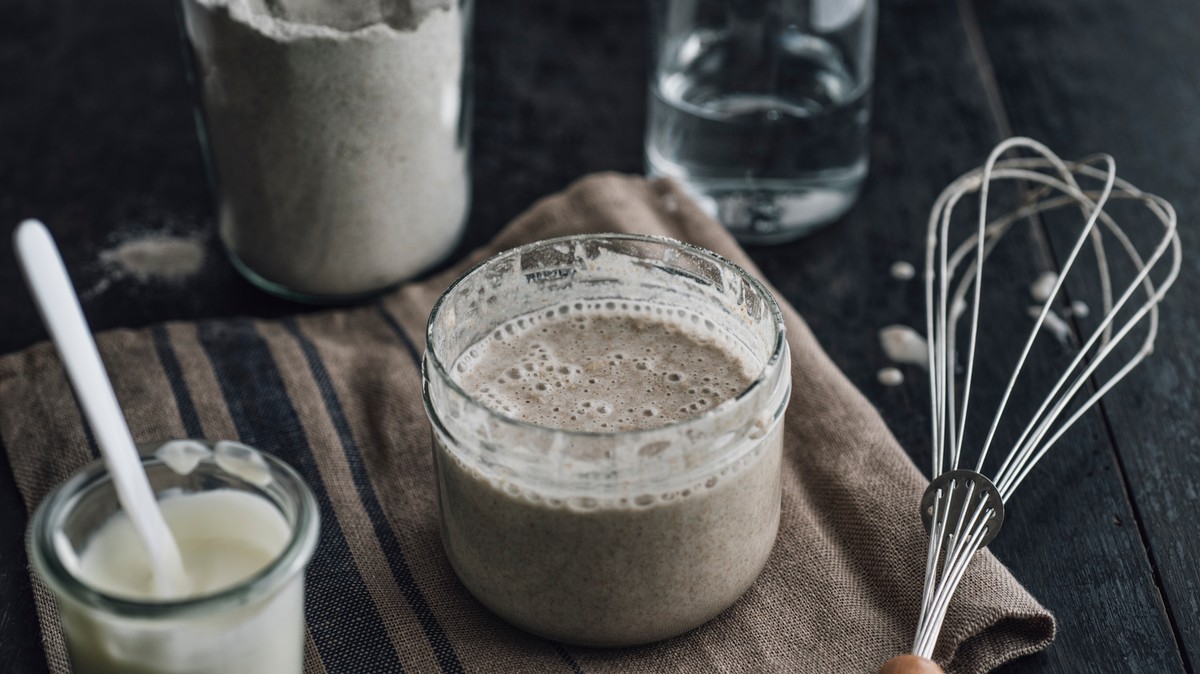
Researchers Want to Know What Your Sourdough Starter Smells Like
1. Feed Your Starter. Often, a bad smell is simply a sign that your starter is hungry. Regular feedings can help restore the balance of yeast and bacteria and eliminate the bad smell. Remember to discard a portion of your starter before each feeding to keep the population of microorganisms manageable. 2.
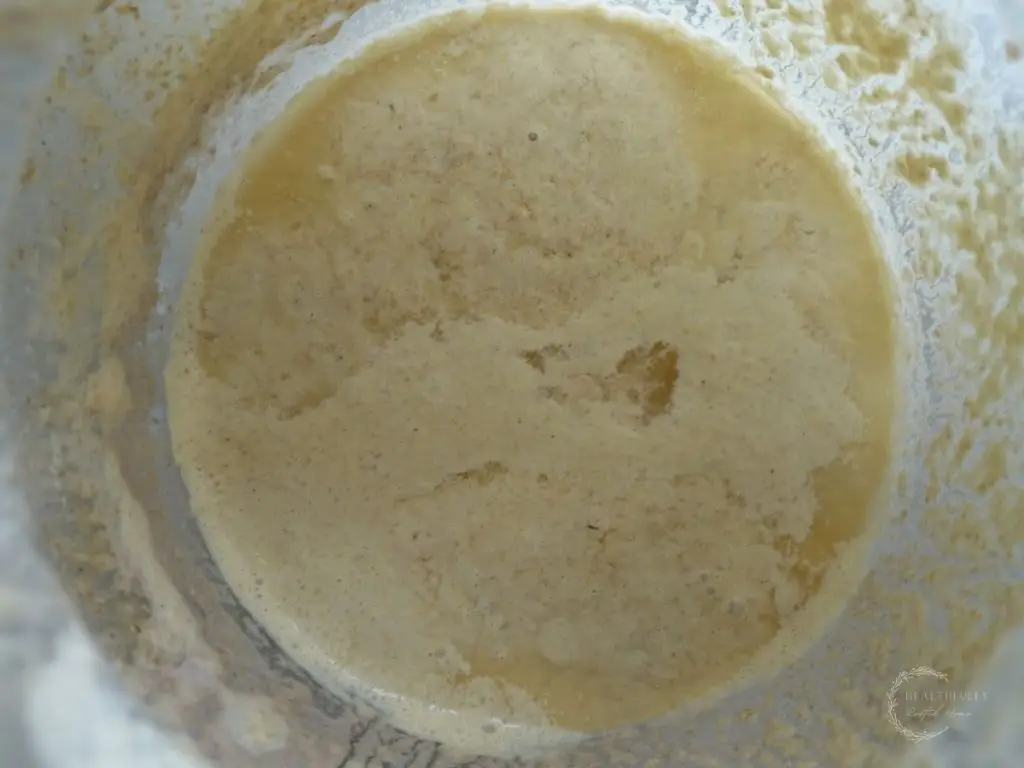
Bad Sourdough Starter How to Revive It Healthfully Rooted Home
An alcohol smell in sourdough starter is generally a sign that the yeast is producing too much alcohol. This can be caused by using too much mature starter in the feed, not feeding the starter frequently enough, or keeping the starter in a warm environment. If the alcohol smell is too strong, it may be a sign that the starter is over-fermenting.

Is this mold on my sourdough? ( The Fresh Loaf
As your sourdough starter matures, the balance of bacteria shifts, and different strains of bacteria become more dominant. This can cause your sourdough starter to smell differently over time. If your sourdough starter smells bad, it may be because there is too much lactic acid present. To fix this, you can add a bit of flour to your starter to.
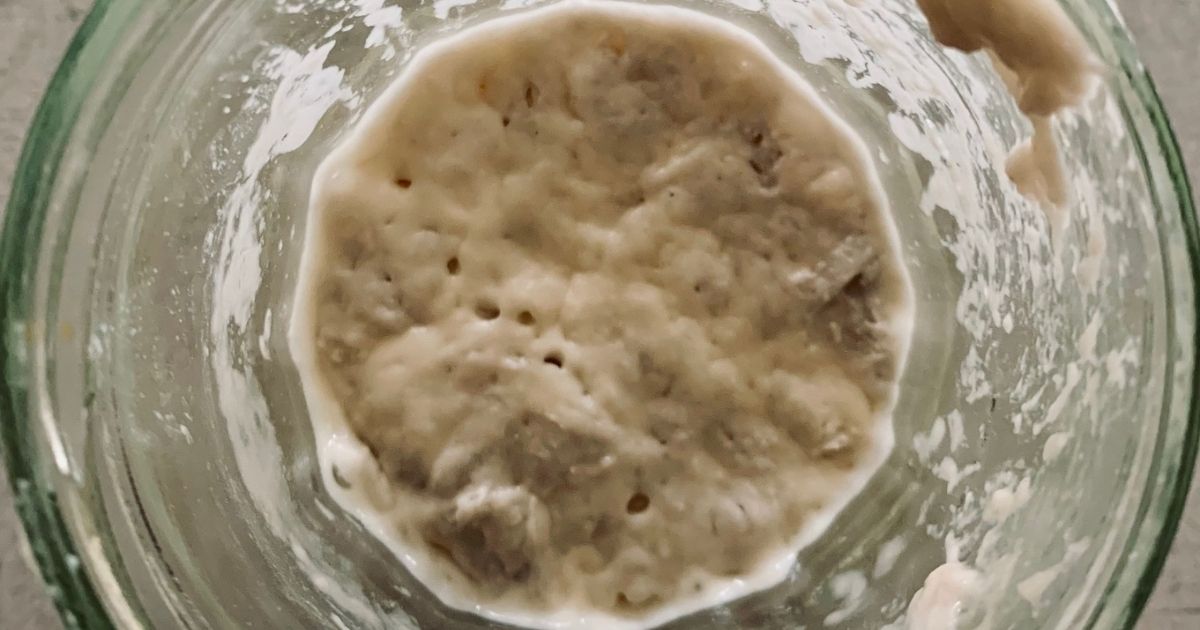
What Does Mold on Sourdough Starter Look Like? Easy Guide.
Most commonly, the issue here has to do with temperature ( which is very important ). If your sourdough starter is kept at a low temp, even 70°F (21°C), it will slow fermentation activity and appear to be sluggish, taking longer to rise and progress through the typical signs of fermentation. The solution: keep it warm.
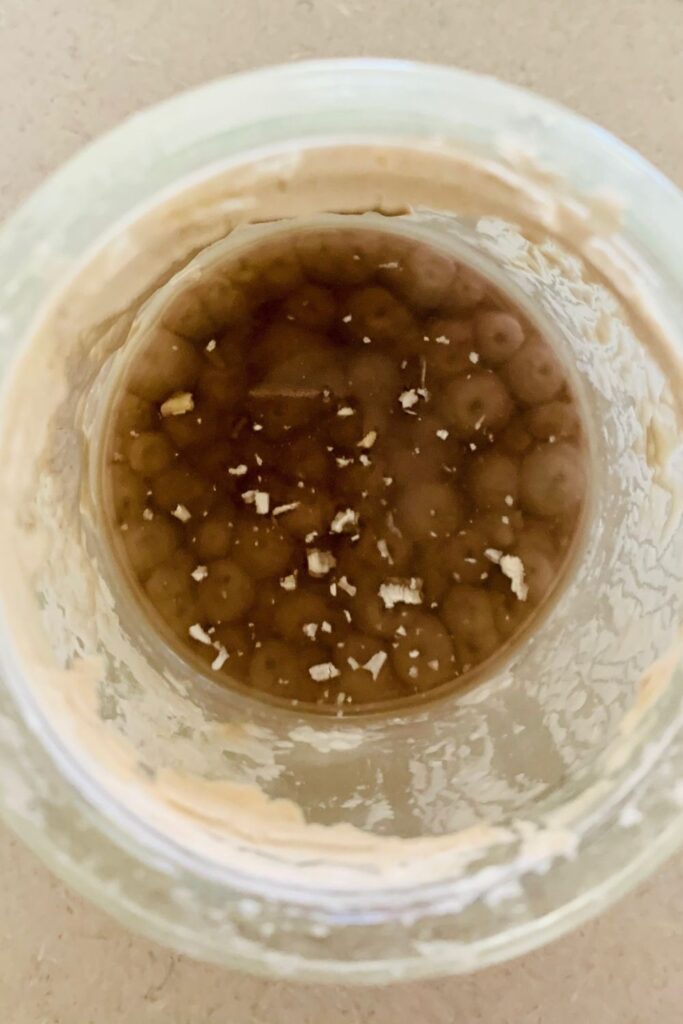
Moldy Sourdough Starter [with photos of bad sourdough starter] The
Unusual Smells: If the smell is vinegary, it might need more frequent feedings; for other smells, consider adjusting feeding ratios or using filtered water. Mold Growth: Remove the affected portion and feed the starter regularly; ensure cleanliness of utensils and container.

Sourdough Starter Dan BeasleyHarling
Sourdough starter troubleshooting: points to remember. Well-maintained mature sourdough starters are extremely hardy and resistant to invaders. It's pretty darn hard to kill them. Throw out your starter and start over if it shows visible signs of mold, or an orange or pink tint/streak.
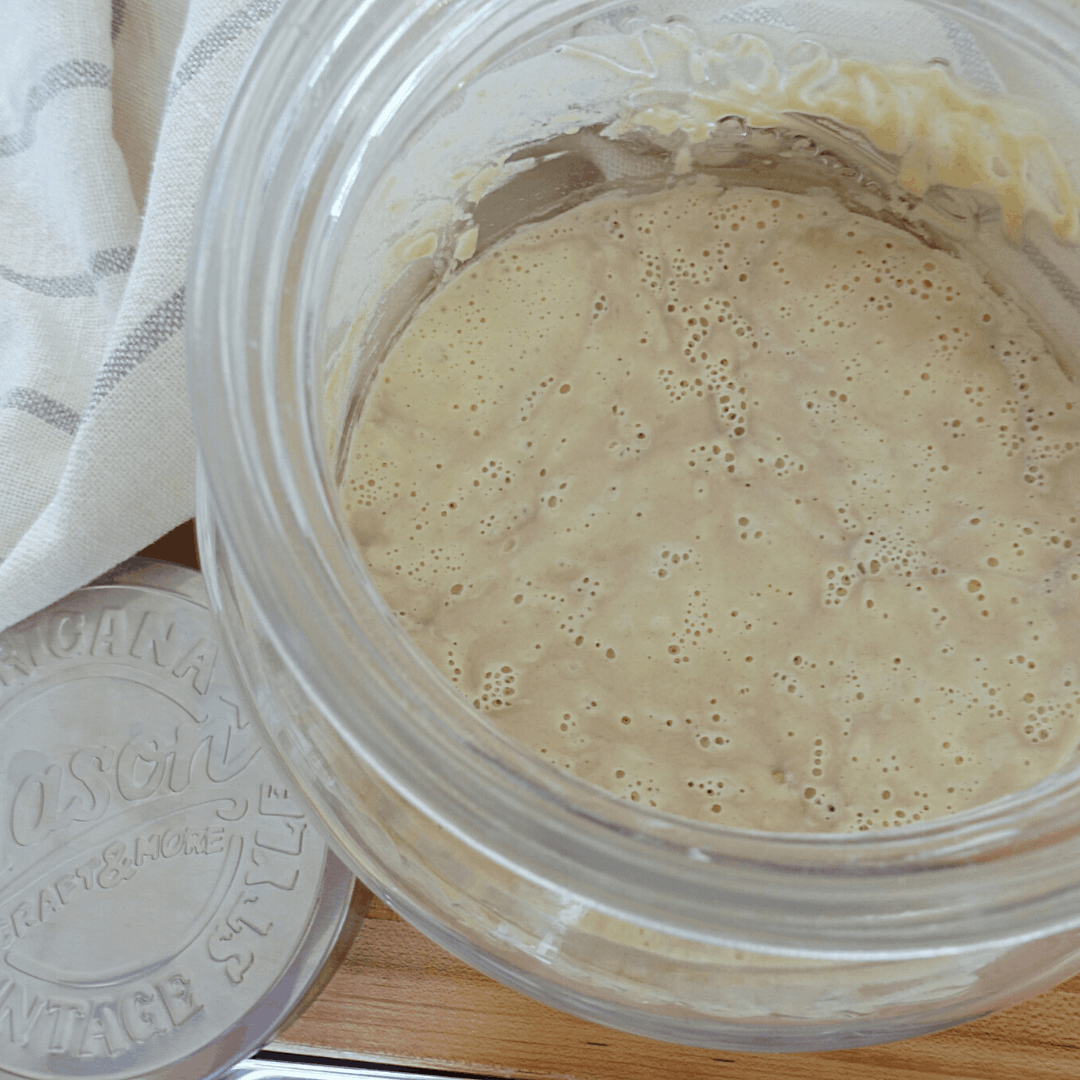
Bad Sourdough Starter How to Revive It Healthfully Rooted Home
The sweet smell and taste occurs due to high amylase enzyme activity. These enzymes are converting complex starch molecules into simple sugars. The starches will have a neutral smell and taste, but the simple sugars are the opposite. When the amylase enzymes go to work, it'll make the starter smell and taste sweet.

Is My Sourdough Starter Bad? How to Revive Old Inactive Starter
Discoloration can indicate a problem with the starter, but it's not always a sign of a bad one. A thin layer of hooch (liquid) on top of the starter is normal and can be stirred back in. However, if the starter shows signs of orange, pink, or green, it could be a sign of contamination and should be immediately discarded.

YOUR STRONG STARTER. How to nurture a healthy sourdough starter that w
And the reason for this is that most starters tend to have a powerful and slightly unpleasant smell. A healthy sourdough starter will develop a wide range of pungent smells, ranging from sweet, to vinegar-like, to nail polish. This smell is caused by the acid produced by the bacteria that live in the starter.

Sourdough Starter Day 47 What it will look like when it isn't fed
After answering basics such as what type or types of flour are being used and where it's being grown, the project wants to know how high the starter rises and what it smells like.
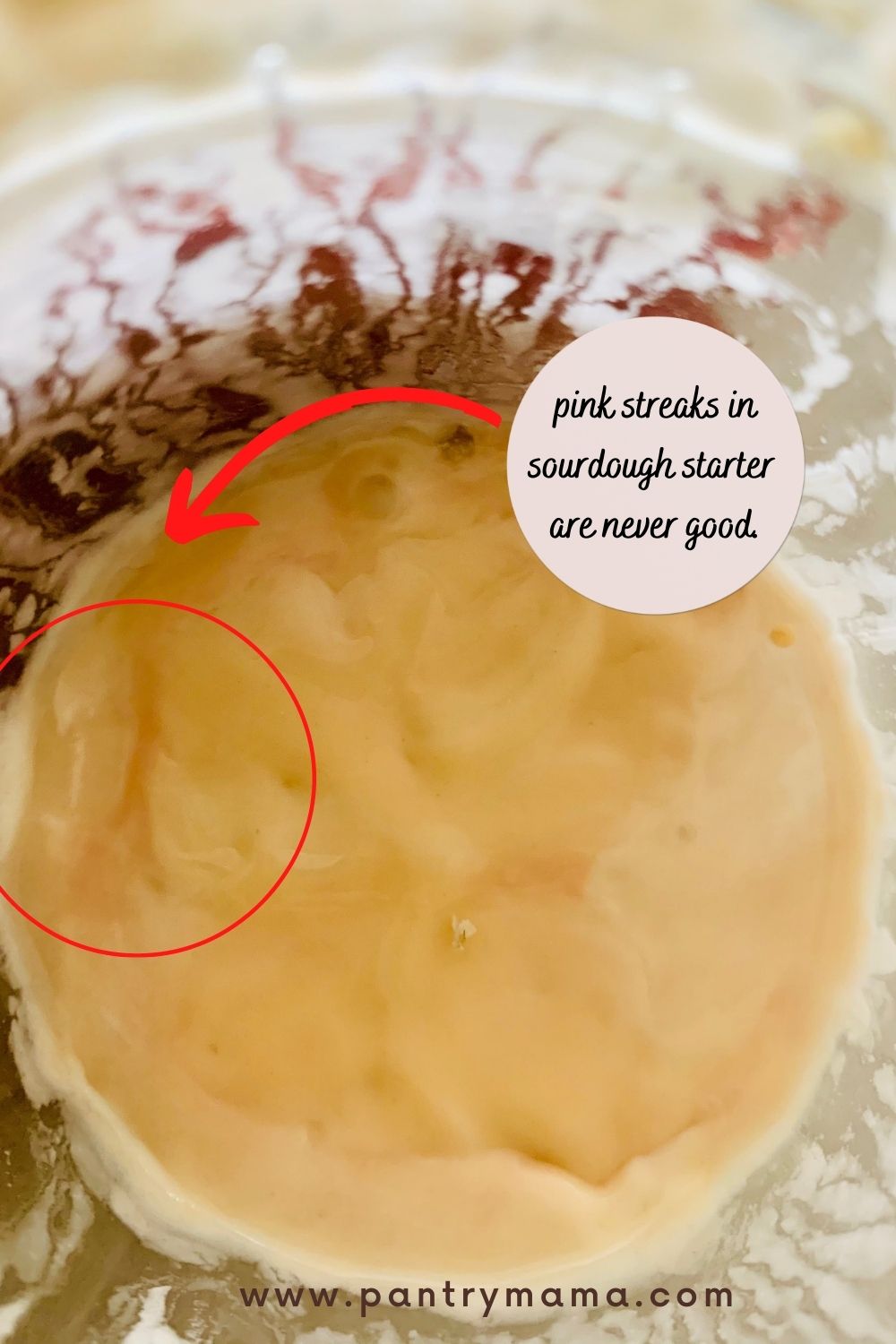
Have I Killed My Sourdough Starter? The Pantry Mama
Firstly, try to feed your starter more often i.e., once per day. Secondly, store your starter at an appropriate temperature. The main thing that causes the bacteria to become more active and hungrier is the heat. The average temperature your sourdough starter should be stored is 75 ° F. If you store your starter at a higher temperature, then.
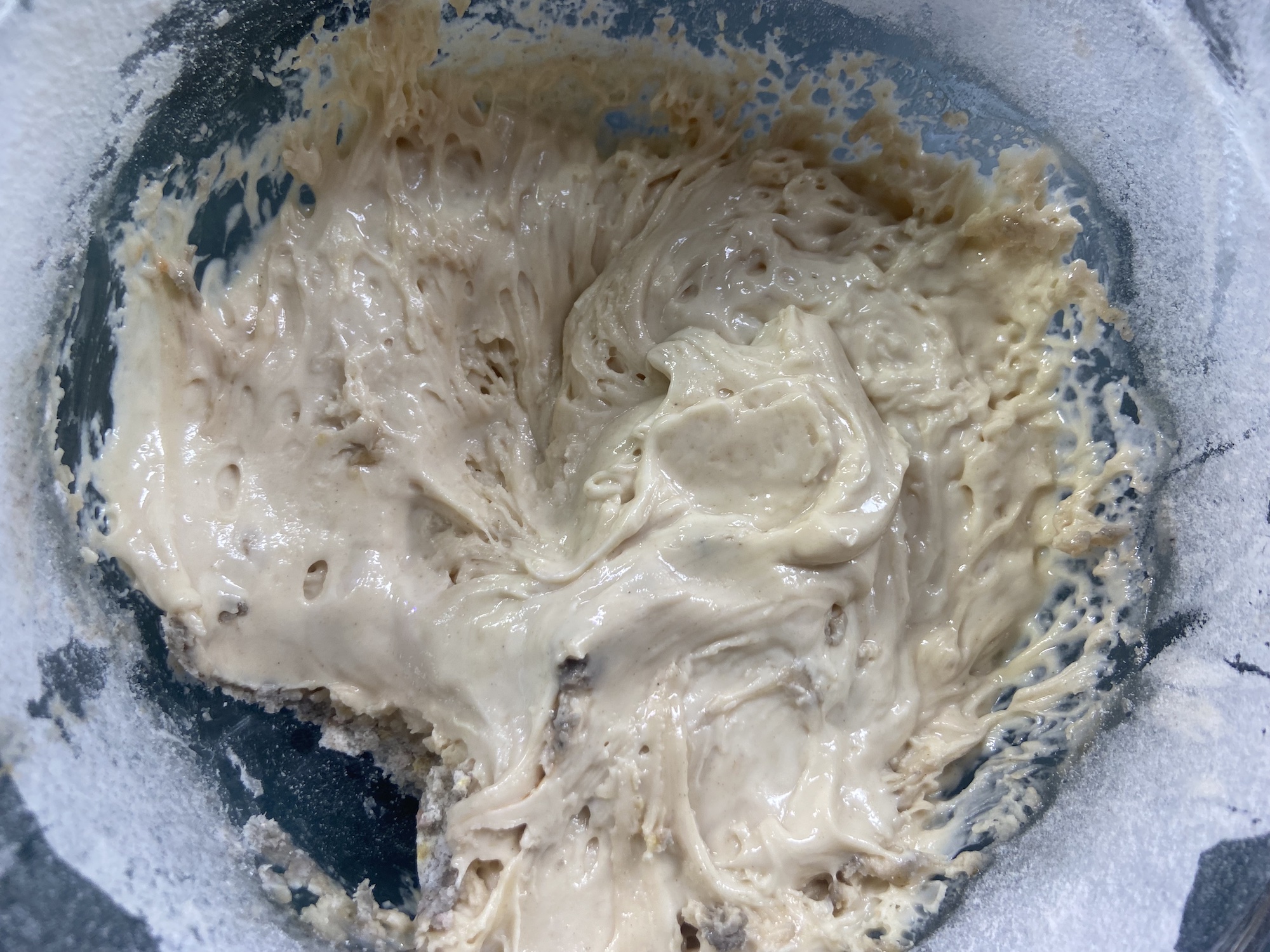
When your sourdough starter goes bad Burnt My Fingers
My sourdough starter smells like old gym socks - why? In the first few weeks, as the bacteria and yeast colonies are establishing themselves, your starter may smell really, really bad. And I'm not just talking a little whiffy. You might find it smells anything from old gym socks, to vomit to pretty much anything in between..
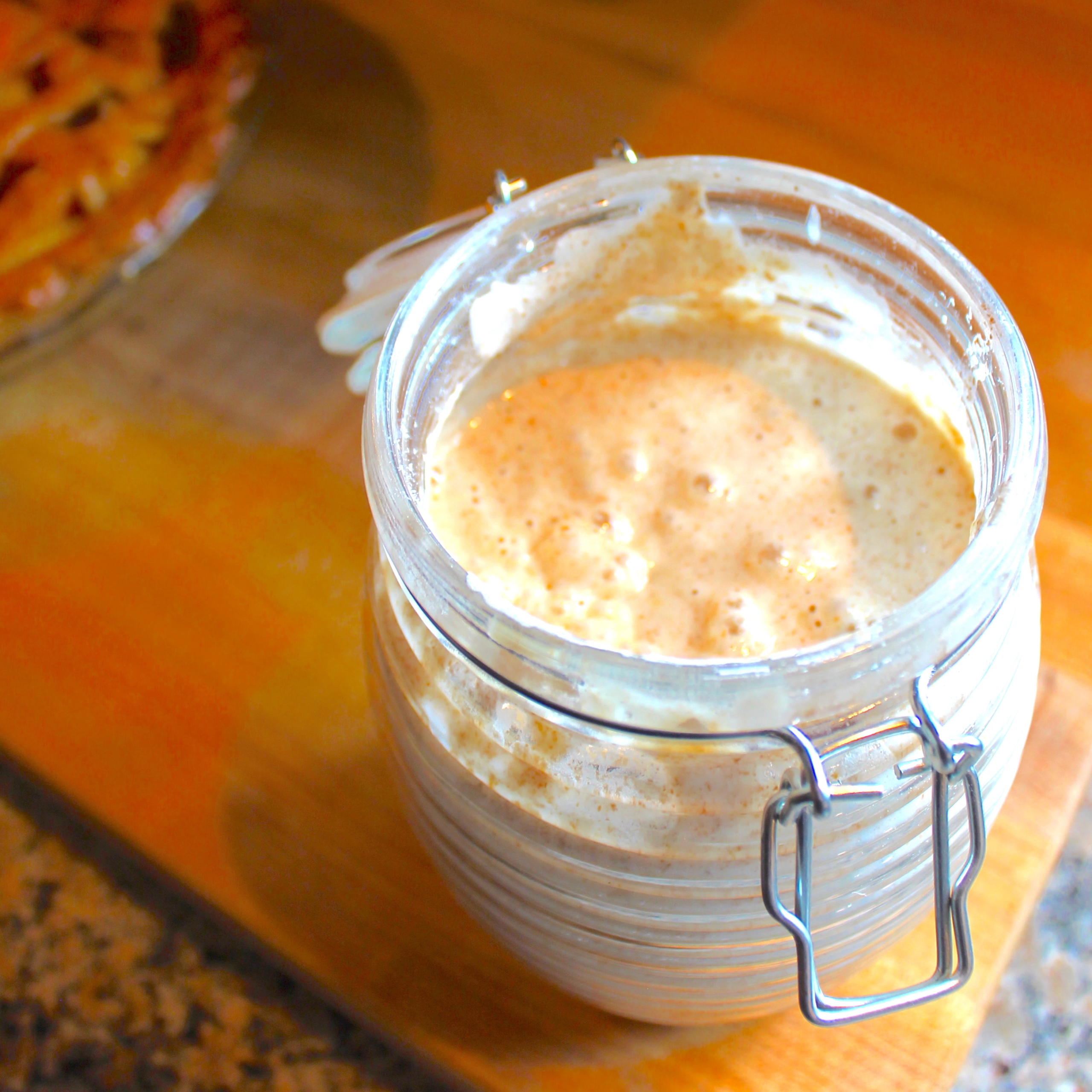
Common Questions for Sourdough Starters
Sourdough starters can develop a wide range of smells, the most common one being that of alcohol. The smell is caused by the acid produced by the bacteria living in the starter. When the bacteria have consumed all the sugar in the starter the smell will intensify. For new sourdough bakers this might be a little too much information at once, so.